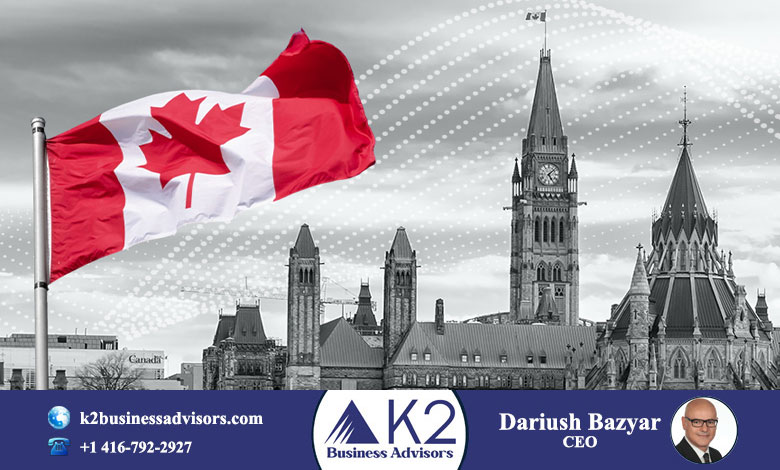What taxes are going up in 2025 in Canada?

Tax in Canada 2025: I need to figure out what taxes are going up in Canada in 2025. Let me start by recalling any recent announcements or government plans. I remember that the Canadian government sometimes pre-announces tax changes. For example, there was something about the carbon tax increasing annually. Maybe that’s set to continue in 2025?
Also, I think there are scheduled increases for certain taxes tied to inflation. Like, the Canada Pension Plan (CPP) contributions have been gradually increasing. There was a plan to enhance CPP, so maybe that’s still ongoing into 2025. Similarly, Employment Insurance (EI) premiums might be adjusted based on economic factors.
Another thing is the federal income tax brackets. They are indexed to inflation, so if inflation is high, the brackets might adjust upwards, but that’s not exactly a tax increase. Wait, but if the government hasn’t fully indexed them, people might move into higher brackets more quickly—maybe that’s a stealth increase. But I think Canada indexes them to inflation, so that might not be an increase per se.
There’s also the possibility of new taxes or changes proposed in recent budgets. For instance, the Alternative Minimum Tax (AMT) for high-income individuals was proposed to be revised. The 2023 federal budget mentioned increasing the AMT rate from 15% to 20.5% starting in 2024. Would that affect 2025? Maybe the implementation is phased?
Also, taxes on certain goods like alcohol or tobacco often go up annually. The federal excise tax on alcohol usually increases with inflation every April. If that continues, then by 2025 those would be higher. But that’s more of a regular adjustment.
I should also check if there are any province-specific tax increases planned. For example, provinces might have their own carbon pricing systems or other taxes. But the user asked about Canada as a whole, so maybe focus on federal taxes.
Another point: the Canada Recovery Dividend, which was a one-time tax on banks and insurers, but that was for 2022. Maybe other sector-specific taxes? Or changes to capital gains taxes? There was talk about increasing capital gains inclusion rates, but I’m not sure if that’s confirmed for 2025.
Wait, in the 2023 budget, the government proposed changes to the AMT and other measures, but those were set for 2024. So maybe in 2025, those changes would be in effect. Also, the new tax on share buybacks by public corporations, which was set to start in 2024, so 2025 might see its full effect.
Let me organize this:
1. Carbon Tax: annual increase set until 2030, so 2025 would see another hike.
2. CPP Contributions: yearly increases as part of the enhancement, so 2025 would continue that.
3. EI Premiums: adjusted annually, so depending on the economy, they might go up.
4. AMT Changes: higher rate and broader base starting 2024, so affecting 2025 tax year.
5. Alcohol Excise Tax: annual inflation adjustment, so April 2025 would be higher.
6. Potential Capital Gains Changes: if any proposals are implemented, but not confirmed yet.
7. Share Buyback Tax: 2% tax starting 2024, so 2025 would continue.
I should also mention that provincial taxes might change, but unless there’s a specific federal-provincial agreement, it’s better to stick to federal unless stated otherwise. Also, the user might be interested in known scheduled increases versus proposed changes. Need to clarify which are confirmed and which are speculative.
So, confirmed increases would be carbon tax, CPP, EI (if needed), AMT from 2024 affecting 2025 filings, alcohol taxes. Share buyback tax already in place. Capital gains not confirmed. Also, maybe the clean fuel regulations could indirectly increase costs, but that’s not a direct tax.
I should check recent sources to confirm these points, but since I can’t browse, I’ll rely on existing knowledge up to 2023. The carbon price is set to rise by $15/year until 2030, so 2025 would be $15 higher than 2024. For example, 2024’s price is $80 per tonne, so 2025 would be $95, increasing the fuel charge.
CPP enhancement: the second additional CPP contributions started in 2024, so 2025 might see the next phase. The contribution rates were set to increase gradually.
EI premiums for 2025 aren’t set yet, as they are determined yearly based on the EI operating account. If there’s a deficit, premiums might go up.
AMT changes: starting 2024, so tax returns filed in 2025 would be affected.
Also, the luxury tax on cars and aircraft over $100k, implemented in 2022, but that’s already in place.
So, putting it all together, the main federal tax increases in 2025 would be the carbon tax, CPP contributions, possibly EI, AMT, alcohol excise tax, and the share buyback tax. But need to present this clearly, distinguishing between confirmed and speculative.

In 2025, several federal tax and contribution increases are scheduled or anticipated in Canada, based on existing legislation and recent government announcements. Here’s a breakdown of the key changes:
1. Carbon Price Increase
- Details: The federal carbon tax is set to rise annually by 15pertonneuntil2030.In2025,itwillincreaseto∗∗15pertonneuntil2030.In2025,itwillincreaseto∗∗95 per tonne** (up from $80 in 2024). This will raise fuel costs (e.g., gasoline, natural gas) and affect consumers indirectly through higher prices for goods and services.
2. Canada Pension Plan (CPP) Contributions
- Details: The CPP enhancement, which began in 2019, continues to phase in higher contribution rates. By 2025, both employers and employees will see incremental increases to their CPP contributions, building toward the enhanced benefits. The exact rate for 2025 will depend on the finalized schedule, but annual increases are expected as part of the multi-year plan.
3. Alternative Minimum Tax (AMT) Reforms
- Details: Reforms to the AMT, announced in the 2023 federal budget, take effect in 2024. These changes include raising the AMT rate from 15% to 20.5% and broadening the tax base. Taxpayers filing returns in 2025 (for the 2024 tax year) will experience these adjustments, particularly affecting high-income individuals.
4. Alcohol Excise Tax
- Details: The federal excise duty on alcohol is adjusted annually for inflation every April. In 2025, another inflationary increase is expected, raising the cost of beer, wine, and spirits.
5. Employment Insurance (EI) Premiums
- Details: EI premiums are adjusted annually based on economic conditions and the EI operating account. While not confirmed for 2025, rates could rise if the program faces a deficit. The 2024 rate is 1.66per1.66per100 of insurable earnings (up to a maximum).
6. Share Buyback Tax
- Details: A 2% tax on corporate share buybacks by public corporations took effect in 2024. This tax will continue in 2025, potentially influencing corporate financial strategies.
7. Potential Capital Gains Changes
- Status: Speculative. The 2023 budget proposed reforms to capital gains taxation (e.g., increasing the inclusion rate), but no changes were confirmed for 2025. Future budgets could introduce adjustments.
Provincial Considerations in Canada
- Some provinces may adjust their own taxes (e.g., carbon pricing systems, sales taxes), but these are separate from federal measures.
Summary of Confirmed Increases in Canada
- Carbon tax ($95/tonne in 2025).
- CPP contributions (continued phase-in of enhanced rates).
- AMT reforms (affecting 2024 tax returns filed in 2025).
- Alcohol excise tax (annual inflation adjustment).
- Share buyback tax (ongoing 2% levy).
Key Notes:
- These changes primarily impact federal taxes, with indirect effects on consumer costs (e.g., carbon pricing).
- EI premiums and provincial taxes may vary based on economic conditions and regional policies.
For precise figures, consult official sources like the Canada Revenue Agency (CRA) or Finance Canada as 2025 approaches.




